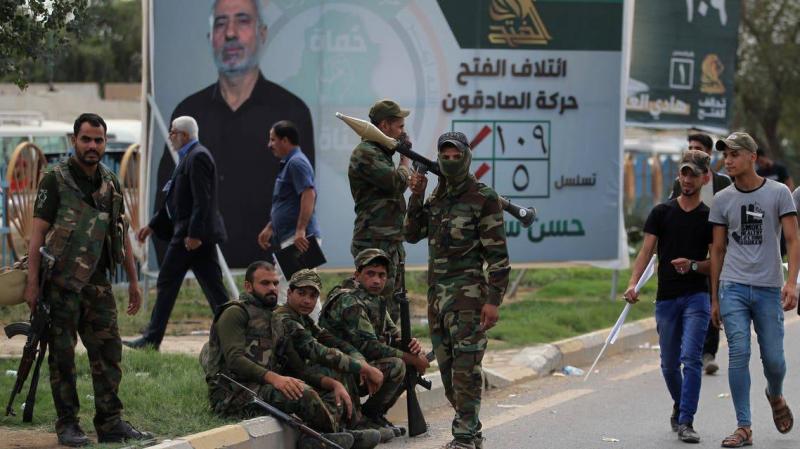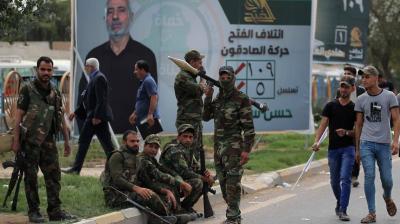The re-election of a hardliner in Iran has highlighted the militias backed by Tehran in several Arab countries, especially since Ebrahim Raisi, who is close to the Iranian leader, is considered one of the most hardline figures and the most supportive of expanding the country's influence through militias and disseminating the doctrine of "Wilayat al-Faqih." This situation raises concerns among some observers of Iraqi affairs about the potential implications of this election on militias, particularly in Iraq and Lebanon as well.
**Allegiance to Khamenei**
A previous report by The Economist emphasized the influence of Iran-affiliated factions in Iraq, detailing how these groups openly declare their allegiance to Iranian Supreme Leader Ali Khamenei, often at the expense of the Iraqi state. The spiritual leader of one of these factions, part of the Popular Mobilization Forces, stated, as reported by the magazine, that the faction follows the orders of the Iraqi Prime Minister. However, he confirmed that in cases where the Prime Minister's directives conflict with Khamenei's, the latter takes precedence.
**On the Revolutionary Guard's Plan!**
Another man sitting with the leader in his office, adorned with pictures of Quds Force Commander Qassem Soleimani and the Iranian leader, expressed hope that "the Popular Mobilization Forces would become like the Iranian Revolutionary Guard," which operates under the Supreme Leader and not the president, managing a vast and corrupt commercial empire. This ambition, however, terrifies many Iraqis, according to the magazine.
It is noteworthy that several of these armed factions indirectly control some ministries and generate financial gains from border crossings through extortion and smuggling operations. This raises dissatisfaction among many Iraqis towards these actions, but the power of these armed groups also intimidates a significant portion of the populace. The military parade witnessed in Baghdad last month, in protest against the arrest of one of the PMF leaders, serves as clear evidence of these factions' frequent defiance of the state and its decisions.
Similarly, in Lebanon, many Lebanese fear that Hezbollah may jeopardize the country, currently on the verge of collapse, for the benefit of Tehran, especially since its leader has repeatedly affirmed that he is a "soldier in the Wilayat al-Faqih," boasting about serving Khamenei.




